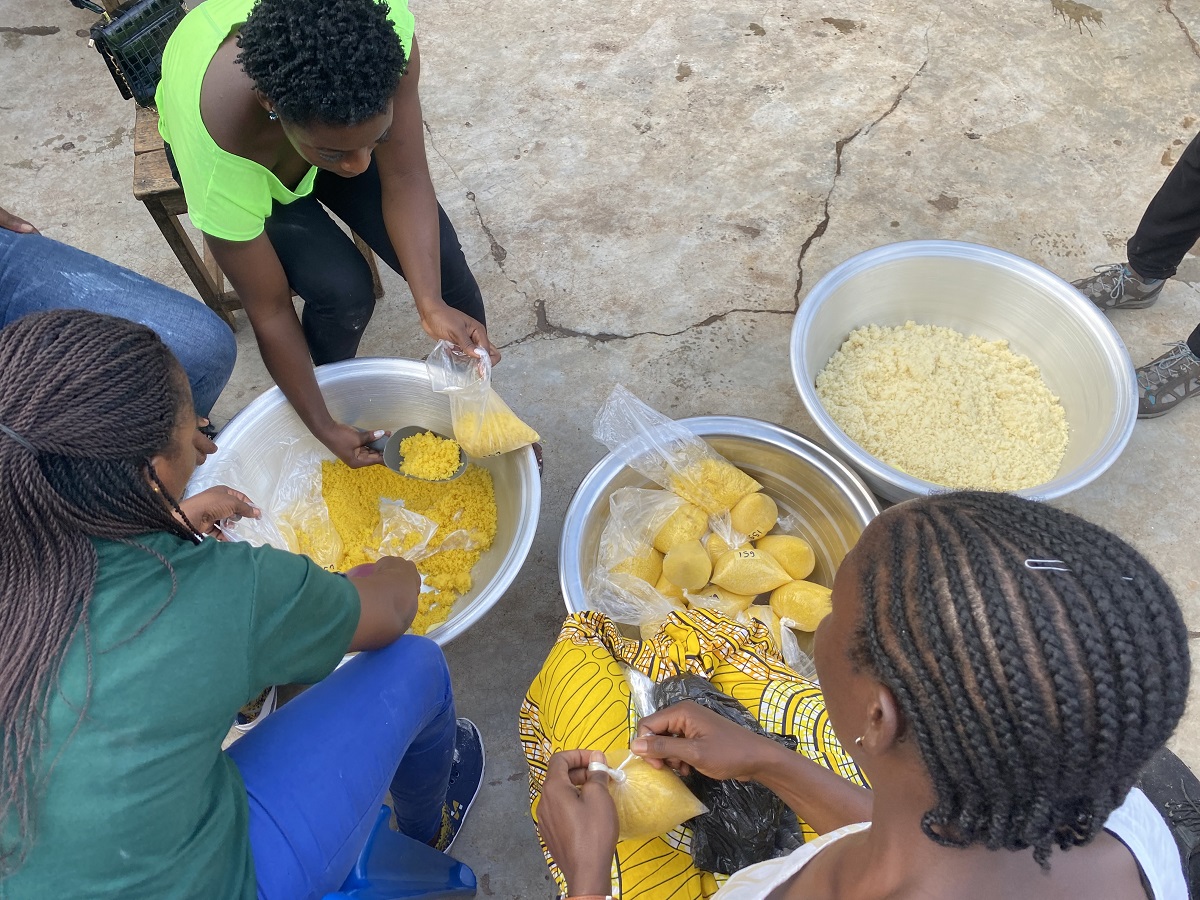
Gender equity may not immediately come to mind when thinking about crop breeding. However, the influence of gender roles and social relationships on crop breeding is considerable, particularly with root, tuber and banana (RTB) crops which are vital for people’s food and income across sub-Saharan Africa.
While breeding programmes have been working for decades on developing new varieties to increase yield potential, pest and disease resistance and for new markets, gender issues and post-harvest and consumer preferences, have tended to be overlooked. This has led to significant problems of acceptability of new varieties among farmers, partly due to a tendency for women, and hence women’s priorities, to be excluded from varietal development programmes.
Crop breeders can have a significant positive impact on women’s lives by breeding for traits in which women in particular have a high interest. For example, any trait that would reduce RTB processing and product preparation time – which involves a significant amount of women’s labour in sub-Saharan Africa in general – would reduce women’s workloads. RTB products are often sold on ‘local’ markets by women, and therefore improving product yield or taste may lead to improvements in women’s income. To meet this challenge, NRI has been collaborating on the project ‘RTBFoods’ led by CIRAD, as part of the CGIAR Research Program on RTBs. Now in its fifth year, RTBFoods continues in its aim to link local consumer preferences with breeders’ selection criteria, to encourage adoption along the value chains of cassava, yam, sweet potato and cooking banana products; focus countries are Benin, Cameroon, Ivory Coast, Nigeria and Uganda.
NRI's Dr Lora Forsythe leads the project’s largest work package on understanding the gender and socioeconomic and cultural drivers of food quality preferences, which is contributing to a growing movement in crop breeding programmes towards promoting gender equality. The project has carried out innovative research that profiles the preferences of women, men and other social groups, from producers to consumers, in ‘Gendered Food Product Profiles’, FPPs (Forsythe et al., 2021). Lora and the RTBfoods Gender Working Group (GWG) – a collaboration of 18 specialists from 10 institutes in the project – developed an RTBfoods FPP gender assessment, which draws extensively on ground-breaking work of the Gender in Breeding Initiative’s (GiB) G+ Product Profile Tool, to assesses the gender impact of RTB plant traits listed in the FPP. A team of plant breeders and social scientists will use this tool to identify how a set of proposed traits will be harmful or beneficial to men and women and the trade-offs between different breeding objectives.
These activities are highlighting essential information for breeders about food products at each stage of the food and product development chain. This will contribute to improving the adoption of new RTB varieties, and most importantly, increase their development impact, particularly in terms of the livelihoods of women.

